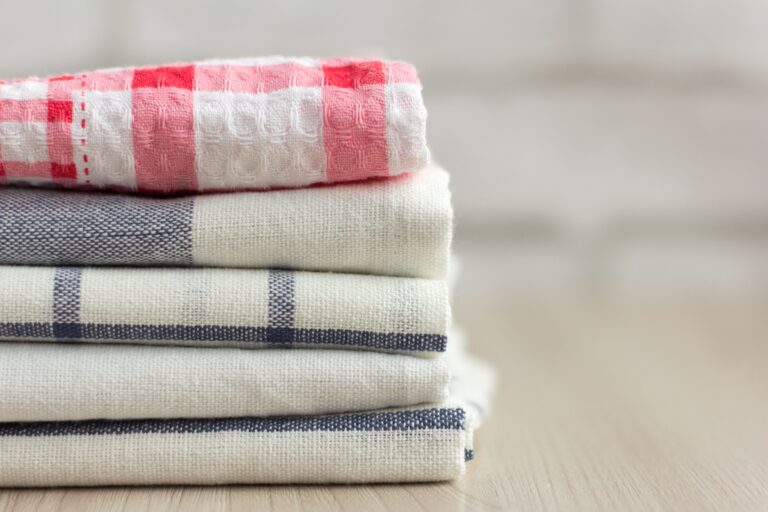Kitchen towels don't get the recognition they deserve. From wiping down failed kitchen experiments to drying dishes to always getting left behind during laundry, this humble necessity goes through a lot. But what's the right way to keep your kitchen towels clean and hygienic?
Kitchen towels, by their very nature, come into regular contact with various food residues, oil and moisture, creating an ideal environment for bacteria to grow. They are also used primarily for crockery and cutlery, which increases the risk of contact with bacteria. Proper cleaning not only maintains hygiene, but also extends the life of kitchen towels and maintains their absorbency.
Can I boil and wash kitchen towels?
Boiling has long been touted as a surefire way to sterilize just about anything, including towels. The idea is simple: heat kills germs. Proponents claim that soaking towels in boiling water effectively removes germs without the need for harsh chemicals.
Boiling is not recommended for washing clothes because high heat can damage fabrics and cause other problems, but for durable, inexpensive kitchen towels, the damage may be tolerable. If your kitchen towels have a short lifespan and you tend to throw them out, recycle them, or reuse them for non-food purposes, the shortened lifespan caused by repeated boiling may not be a big deal. That said, if you're attached to your kitchen towels, have a rare collection of towels, or don't like replacing them regularly, you may want to avoid boiling them to make them last longer.
Best Practices for Caring for Kitchen Towels
Fans of this method are right: boiling your kitchen towels will definitely kill any bacteria on the fabric. But boiling without additives won't remove all the food residue, dirt, dust, or odors that come from your kitchen rags. You need soap for that. In many cases, these tips for caring for your kitchen towels may be just as (or even more) effective than boiling.
Regular washing
To prevent bacteria buildup, make sure to wash your kitchen towels frequently, ideally after each use if they are very soiled.
Hot water and detergent
Most cleaners will eliminate bacteria. and Wash the residue in a standard washing machine cycle with detergent and warm water (usually around 140 degrees Fahrenheit or 60 degrees Celsius).
Towels are separate
To prevent cross-contamination, avoid mixing kitchen towels with other laundry items.
Air dry
If possible, let your towels air dry in direct sunlight – the UV rays will help them get extra clean.
How to boil kitchen towels
If stubborn odors or stains remain, you can add boiling the towels as the last step of your wash. Place the towels in the washing machine separately from your clothes. Set the washing machine to a high heat setting and dry the towels as normal. Bring a wide pot of water to a boil and add the towels. Add bleach if necessary (if the towels' color won't come out with bleach) and stir occasionally for 10-15 minutes. Remove from the pot and air dry. They should now be sparkling clean. If the stain remains, you may need to try using a stripper in your laundry detergent.


